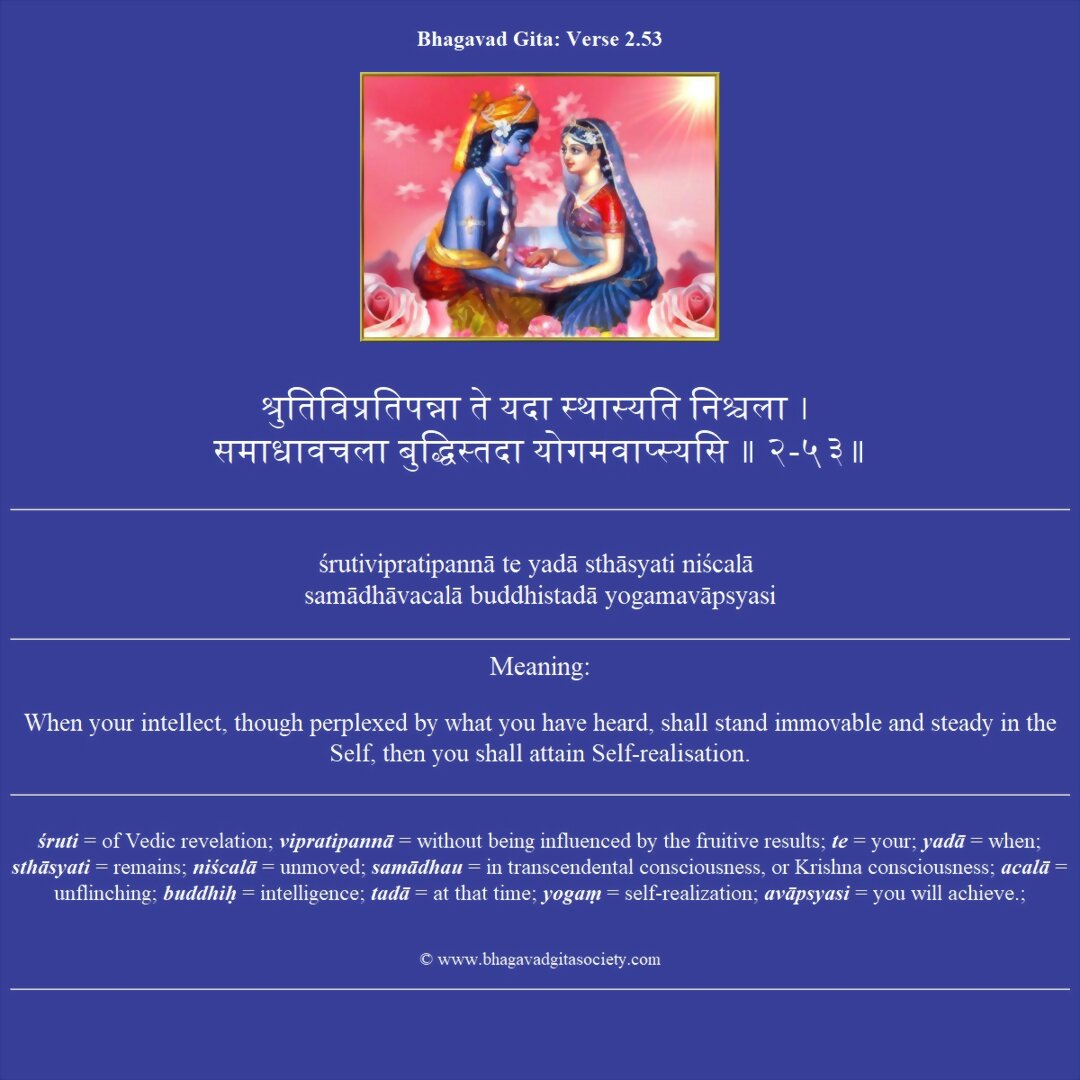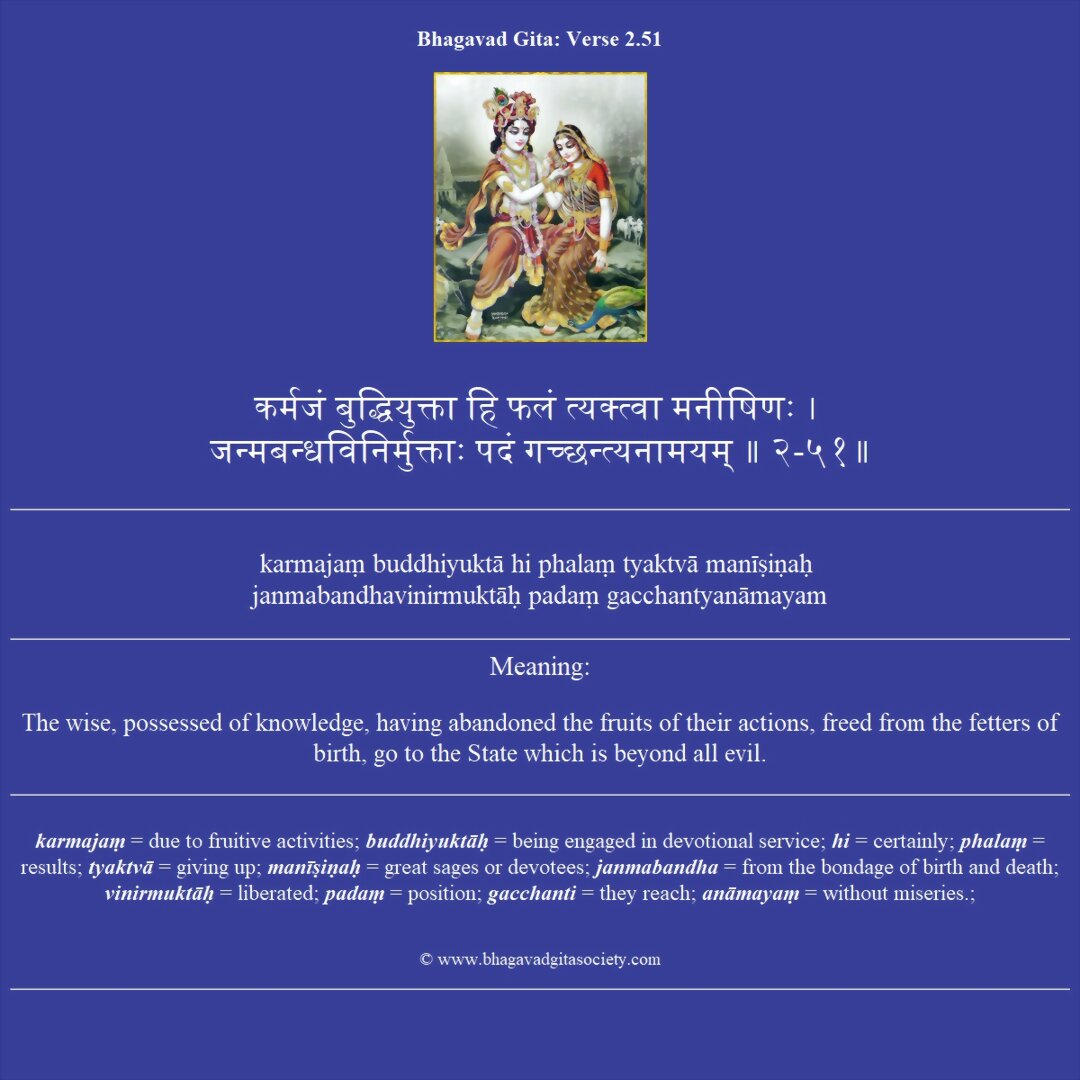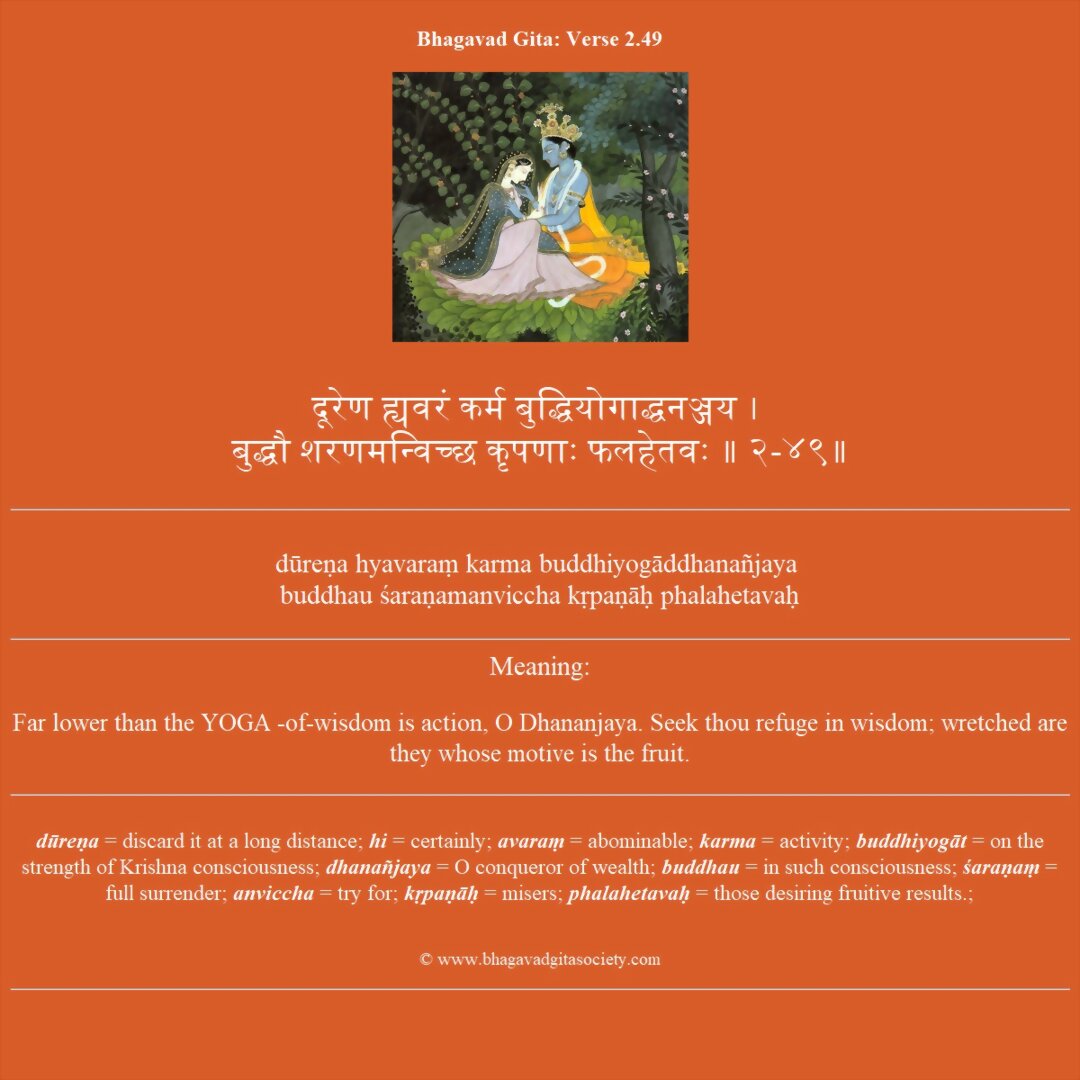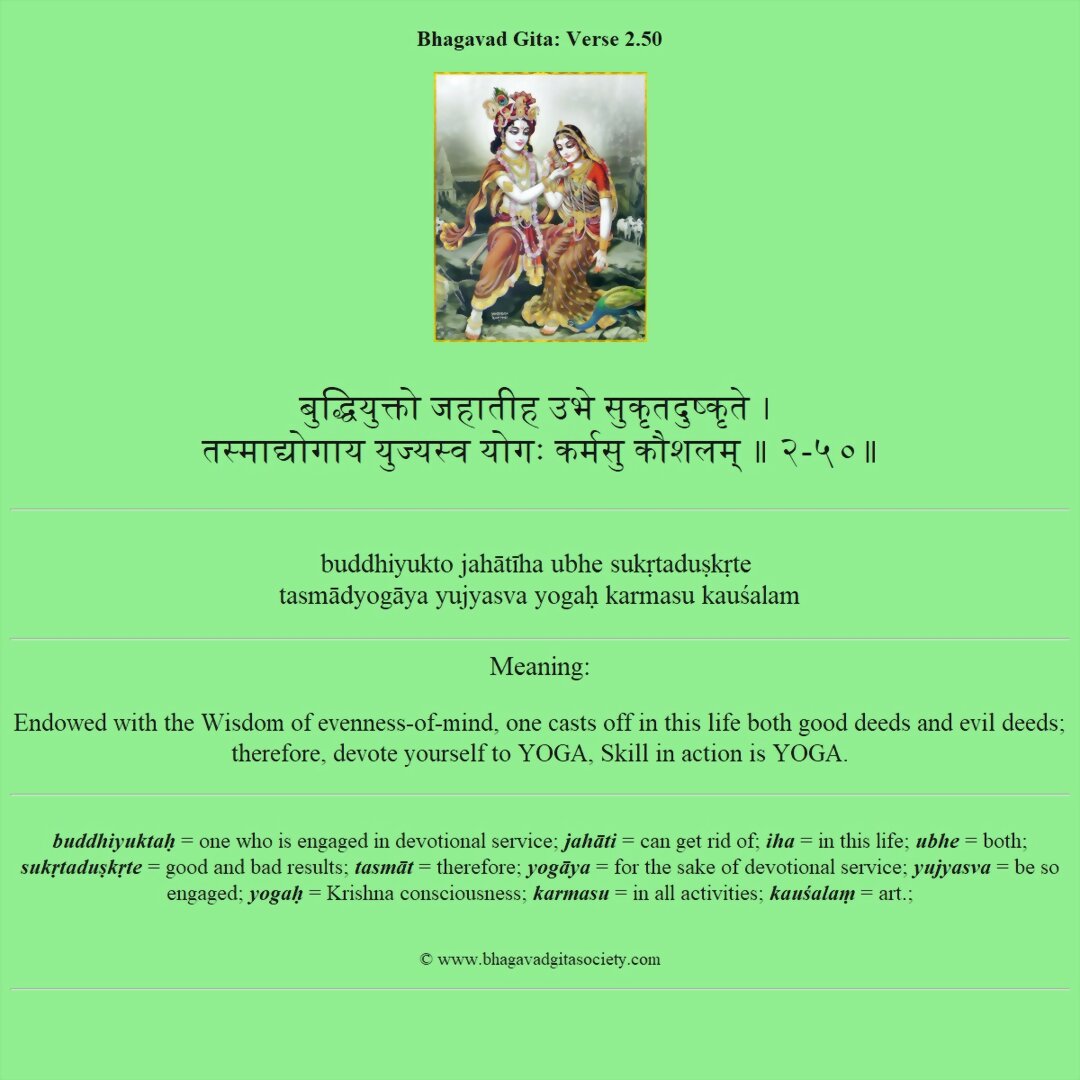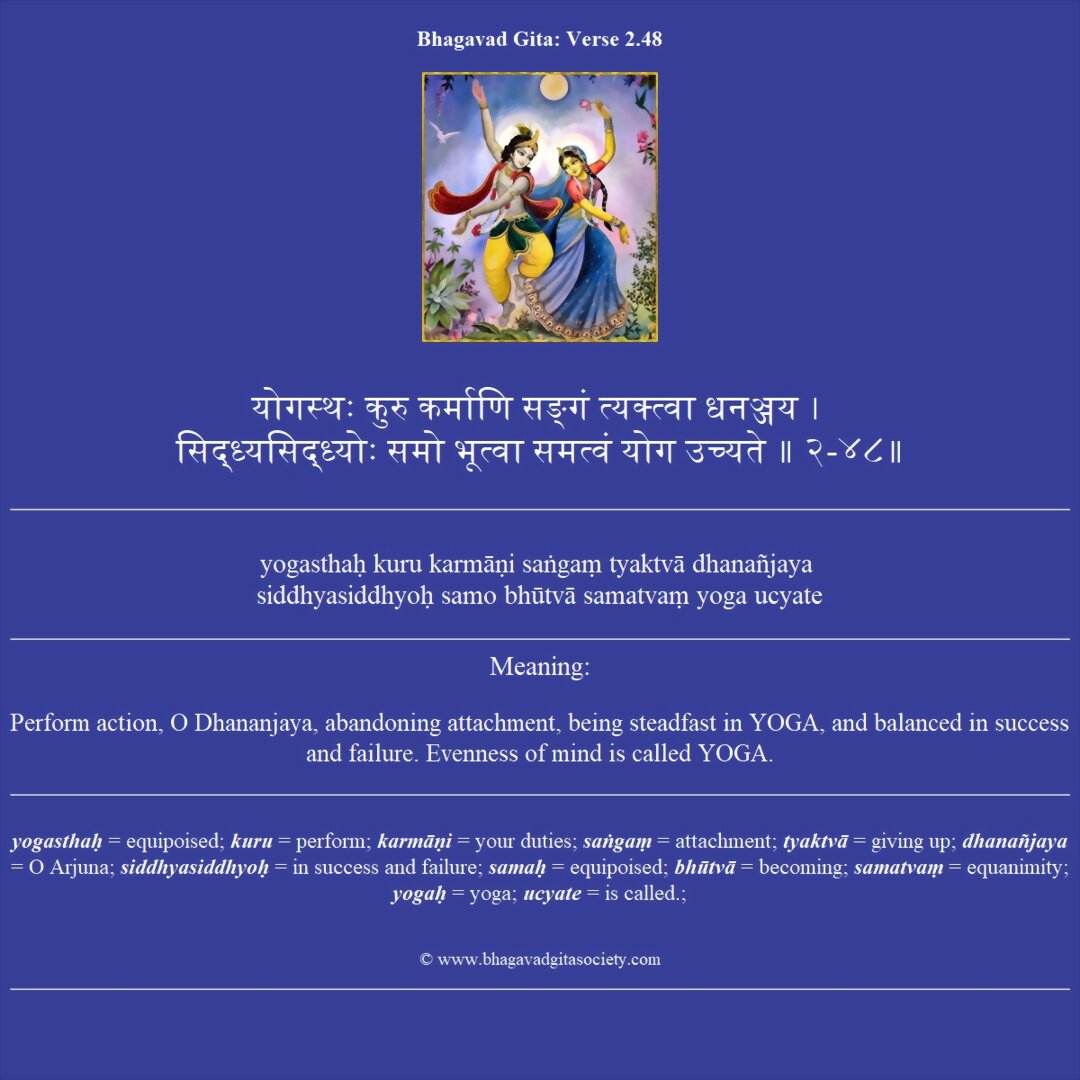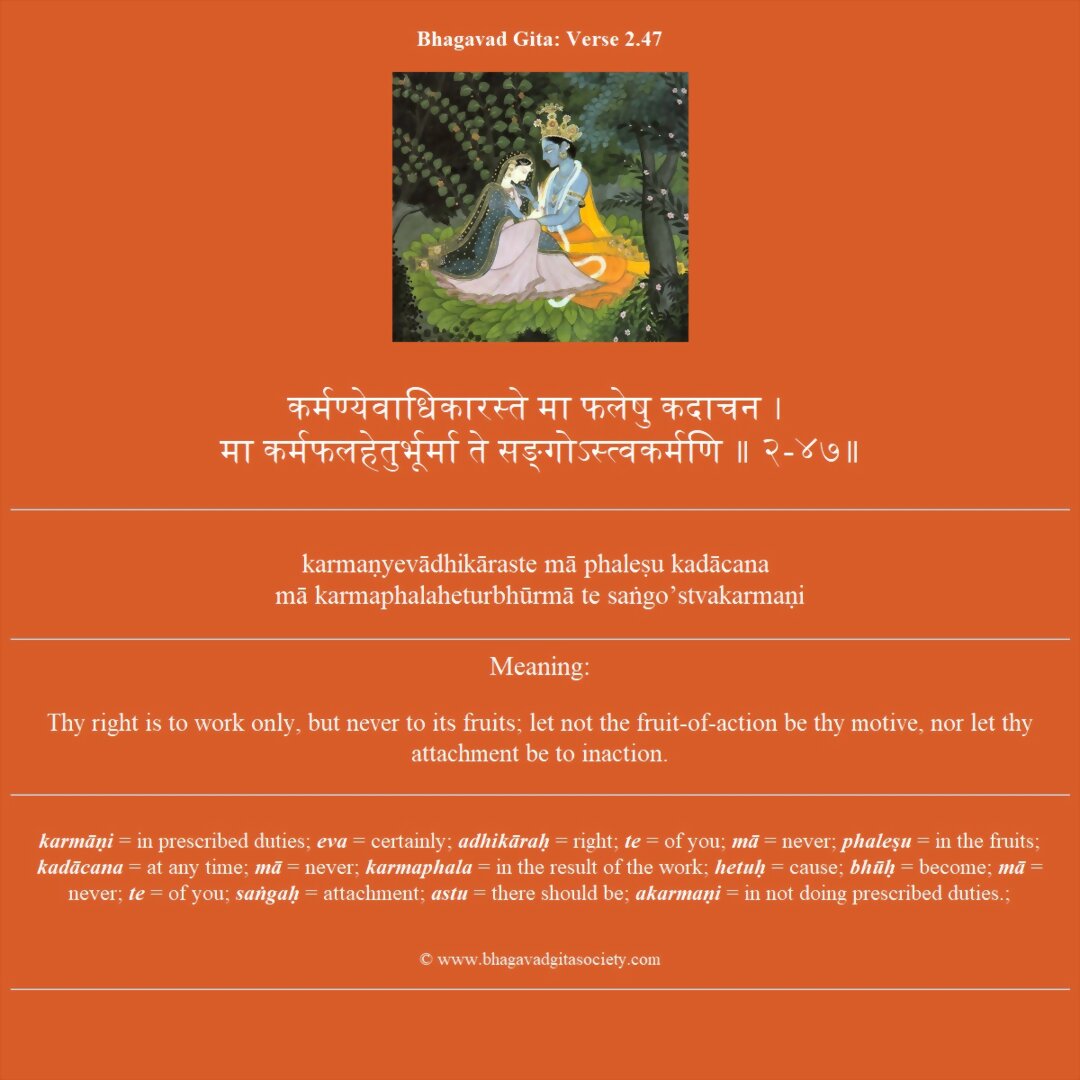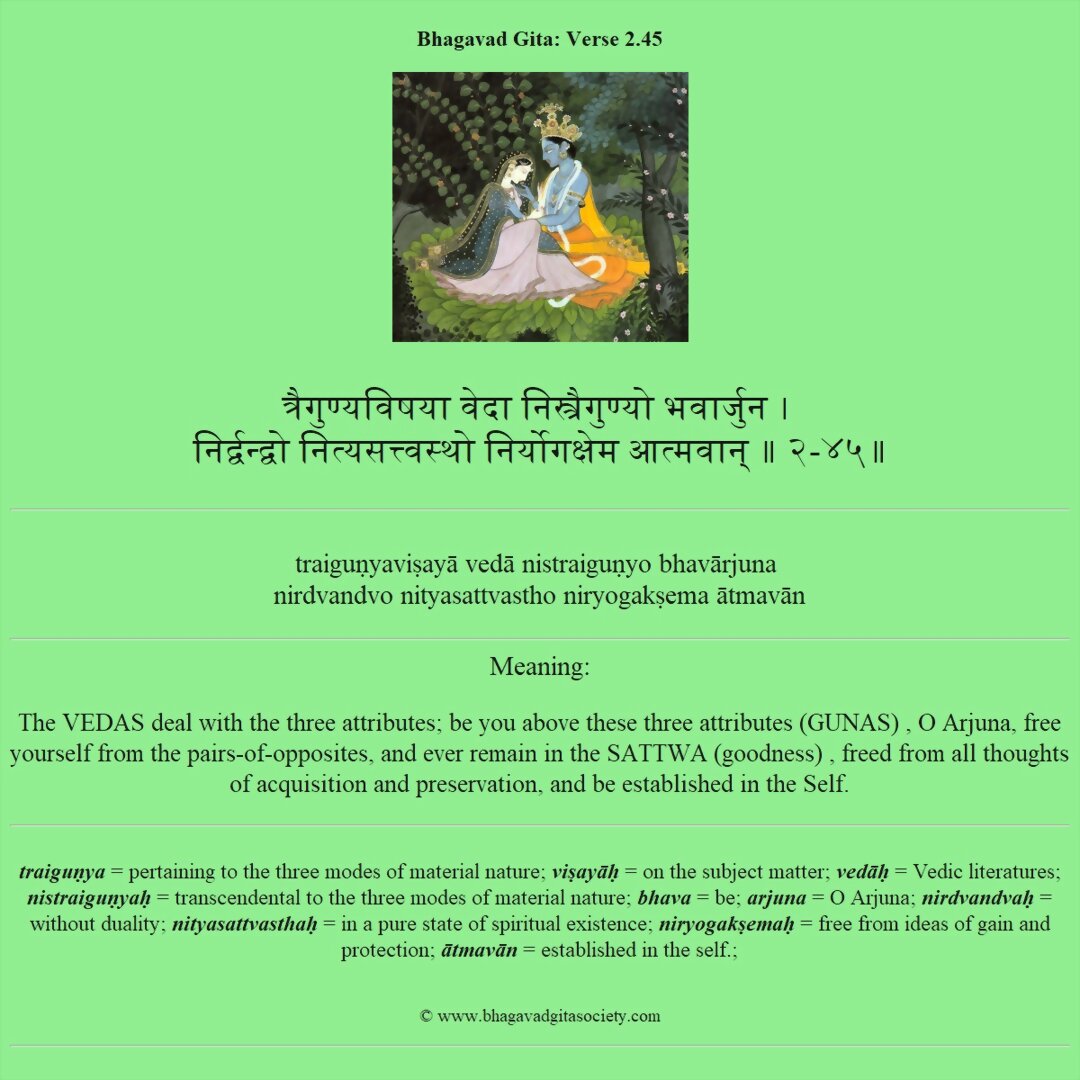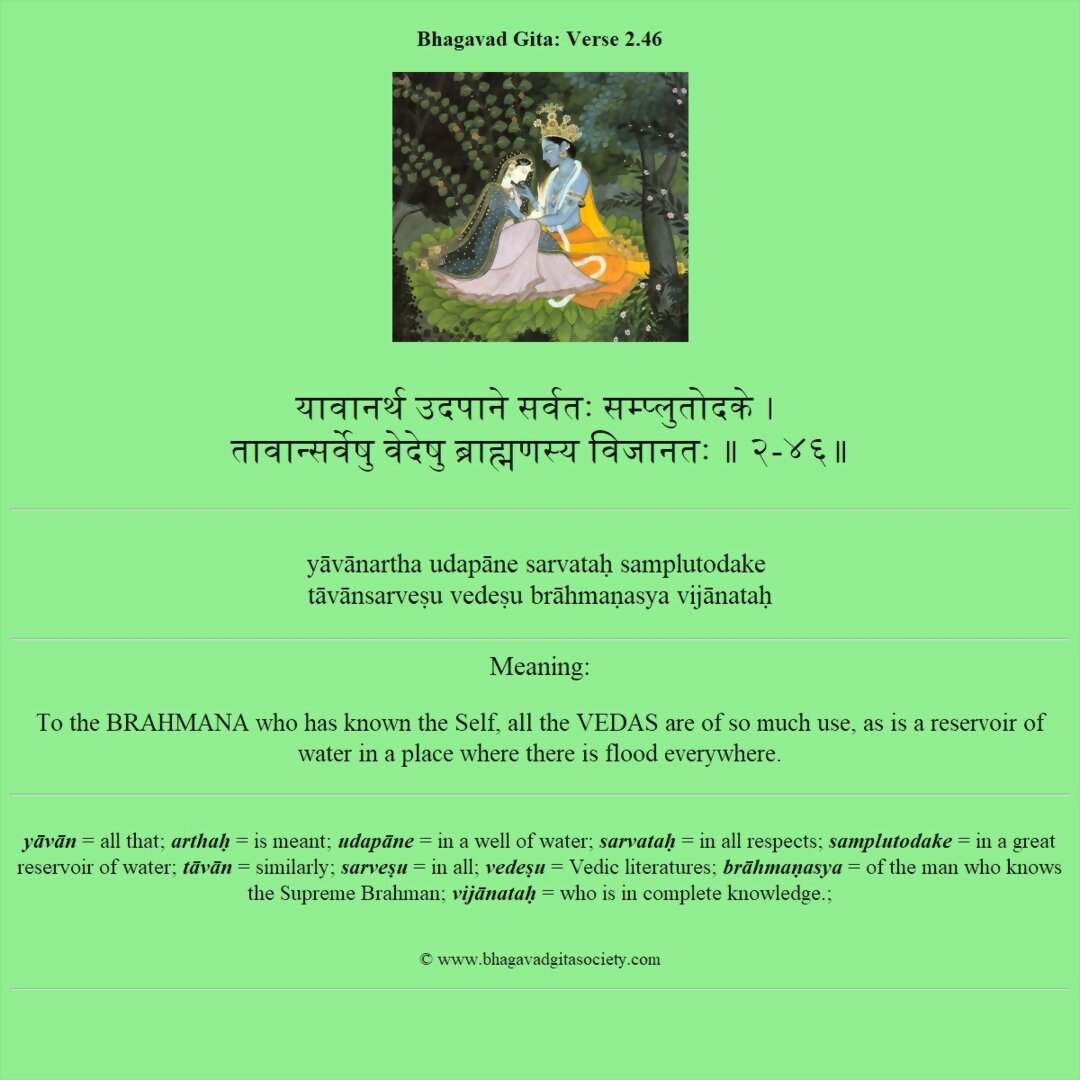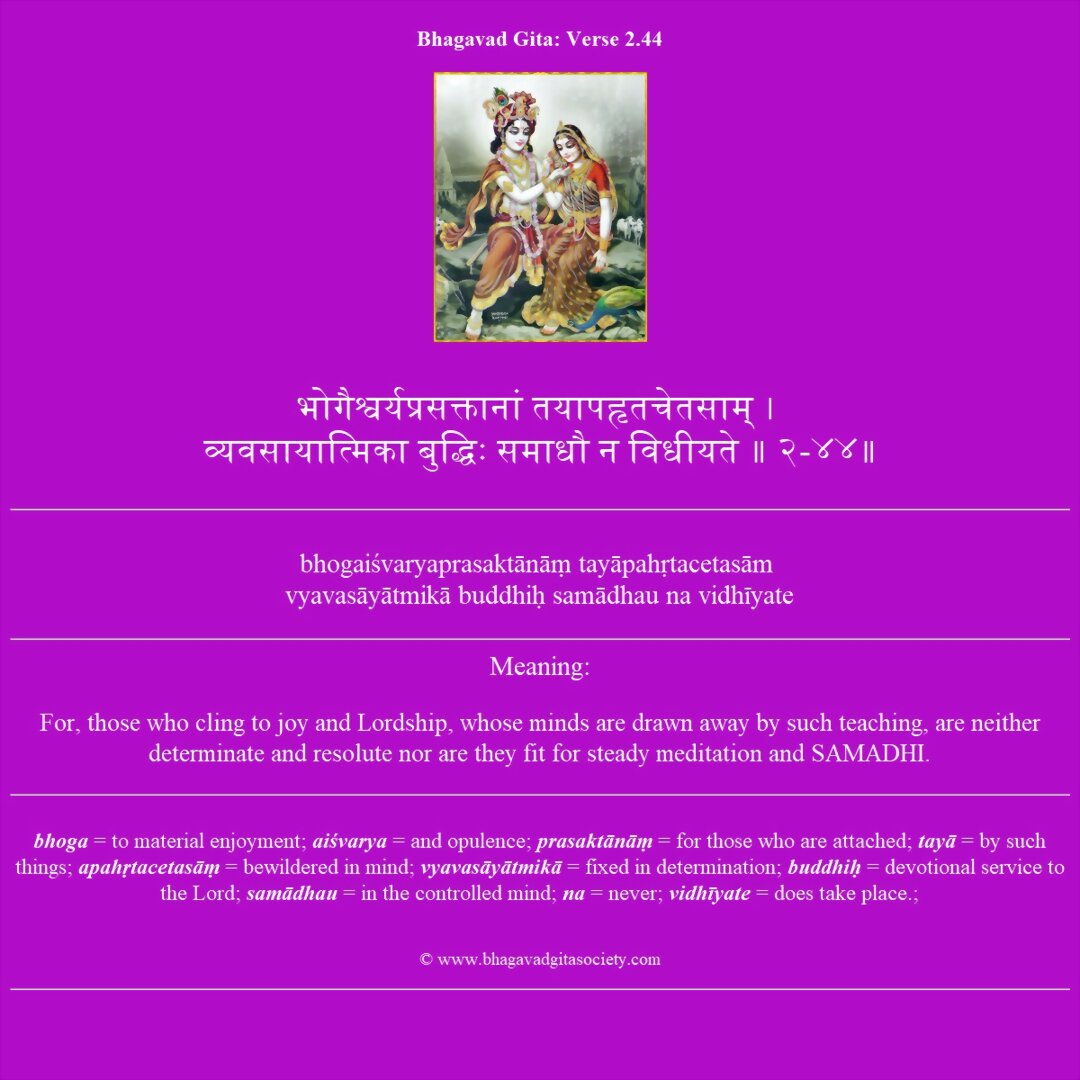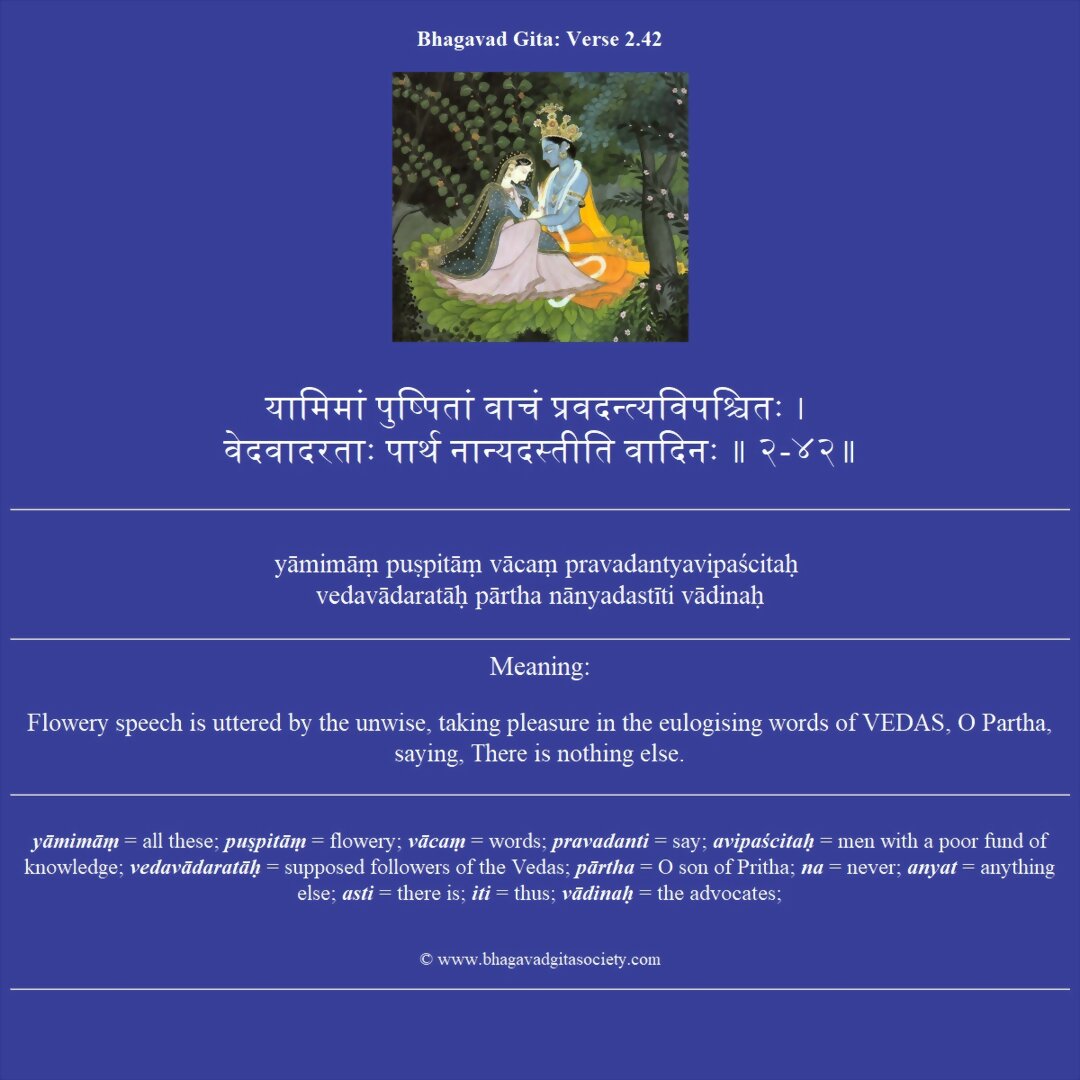Bhagavad Gita: Verse 2.53
श्रुतिविप्रतिपन्ना ते यदा स्थास्यति निश्चला ।
समाधावचला बुद्धिस्तदा योगमवाप्स्यसि ॥ २-५३॥
śrutivipratipannā te yadā sthāsyati niścalā
samādhāvacalā buddhistadā yogamavāpsyasi
Meaning:
When your intellect, though perplexed by what you have heard, shall stand immovable and steady in the Self, then you shall attain Self-realisation.
śruti = of Vedic revelation; vipratipannā = without being influenced by the fruitive results; te = your; yadā = when; sthāsyati = remains; niścalā = unmoved; samādhau = in transcendental consciousness, or Krishna consciousness; acalā = unflinching; buddhiḥ = intelligence; tadā = at that time; yogaṃ = self-realization; avāpsyasi = you will achieve.;
